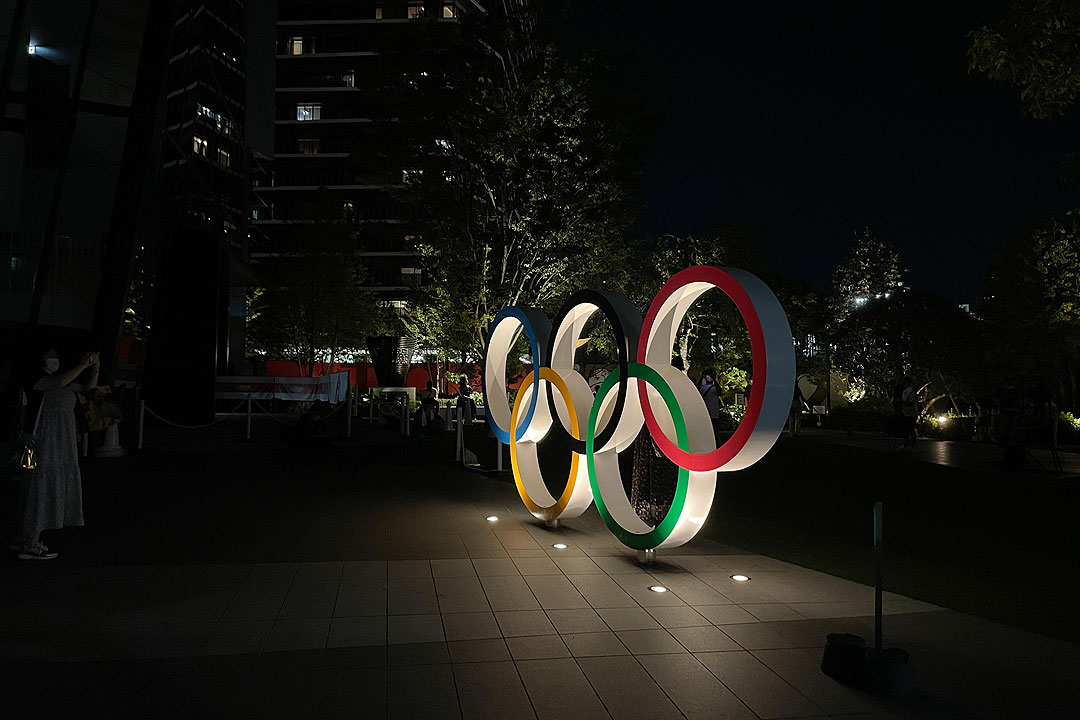
Earning Our Tomorrow
By Philip Ella Juico

“Business, politics, money get in the way of right or wrong.”
— Steve Simon, WTA President
The 35-year-old female Chinese doubles tennis star Peng Shuai disappeared from public view for 18 days after accusing, in a social media post, a retired top official of the Chinese Communist Party of sexual assault. Peng is regarded one of China’s athletes in the mold of the retired Li Na and has reportedly a social media fan base that runs into the millions. Peng earned her highest ranking in 2011 and was popular among both fans and fellow players.
It is no surprise then top some of the world’s tennis icons, like Serena Williams, Naomi Osaka, and Andy Murray, have expressed concern over her welfare and safety and have publicly demanded that Chinese authorities provide information on her whereabouts. In response, a state-owned media outlet produced an e-mail, purportedly from Peng, that she’s home, safe, and doing well. No doubt Peng is eating well, and still enjoys the usual conveniences — except that she cannot talk to media and has no access to gadgets to communicate with the outside world.
That kind of treatment of a person who has, in effect, “crossed the line” against high ranking and powerful officials of the Politburo, is called “soft” (not house) arrest.
The supposed e-mail of Peng was met by, as expected, widespread cynicism and doubt. A video broadcast on state television showed Peng in sports and social functions greeting fans, with no audio and indication of the dates of the functions. The overall reaction of Chinese critics was the events showing Peng and supposed interviews were all orchestrated.
The worldwide condemnation served to merely strengthen Beijing’s resolve to stonewall and denounce the West for politicizing sport.
China’s defense of its position was, of course, expected, not only because of Chinese sensitivity to interference by foreign powers in its internal affairs, but also because of a sporting event. Even more urgent for the Chinese is to protect the Winter Olympics in February 2022, events for which will be scattered among several rural areas of Beijing. Hosting a huge global event like the summer or winter Olympics is part of China’s soft diplomacy and enhances its image as a world power in all aspects of human activity, like sports which attracts all cultures and societies.
China’s handling of the Peng issue got a big boost from the International Olympic Committee (IOC) which owns the Games and stands to either benefit financially from successful Winter Games or suffer from the consequences of a possible boycott of the Games by major western powers like the United States and its allies who are most sensitive to human rights issues.
The Guardian, the prestigious 200-year-old British broadsheet, featured its interview of Dick Pound, an IOC official, writing that “a senior Olympic official has defended the organization’s efforts to confirm the safety of Peng Shuai, dismissing criticism as ‘silly’ and saying no one else had been able to get in touch with the tennis star who went missing after publishing allegations of sexual assault.” The Guardian added that Pound, who has held a variety of posts with the IOC over 45 years and is the chairman of the Olympic Broadcasting Services, rejected criticism of the IOC for giving minimal information after its president, Thomas Bach, spoke with Peng via video link last week. Some had accused the IOC of seeking not to anger Beijing and prioritizing the commercial relationship over the safety of athletes.
The Women’s Tennis Association (WTA), founded by American tennis great and feminist movement leader, Billie Jean King in 1973, takes a totally different position from the IOC and reduces the issue to deciding what is the ethical and moral thing to do.
In an interview with CNN’s Christian Amanpour, Steve Simon, chairman and CEO of the WTA, said that the IOC’s call on Peng was “very much orchestrated,” implying an organized attempt at damage control. In the interview, Simon insists that the whole matter is about “right and wrong.”
Simon declared, “It’s a complicated pathway that we’ve embarked upon but we are resolute in our position on this and we are willing to deal with the challenges that will come as a result.”
One of those challenges is the potential loss of billions of dollars in revenue to be generated in tennis tournaments in China. Tennis had, mainly because of international superstars like the retired Li Na and emerging stars of Asian descent like Osaka, Laylah Fernandez of the Philippine and South American provenance, and Emma Raducanu, born of Chinese and Romanian parents, who are crowding out American and European teen-agers. The sport is so popular in China that many Communist party officials like former Vice-Premier Zhang Giao and his wife took up the sport with Peng as the couple’s coach. Reports indicate that the alleged sexual assault took place in Zhang’s house after a lunch with both Zhang and his wife that followed a tennis tutorial. How this assault took place with Zhang’s wife on the premises, is one of the mysteries that a serious investigation should unravel, together with the fact that Peng remains to be in fine physical condition and is, in fact, athletic compared with a 70+-year-old retired Communist party official.
In response to Amanpour’s question about Simon’s views on the Chinese government’s reaction, Simon remarked, “Well, I would say that at this point, it is unfortunate. It’s not going to affect the overall sport of tennis. This is a situation where we’re dealing with right and wrong and there’s too many times in the world in which we’re faced with challenges such as this where we allow politics and government and money and financials to get into the way of what the right decision is and end up with compromised decisions… When you get to sexual assault, it cannot be compromised in any way, shape, or form and in this situation, you have to separate the business side from the point of what’s right and wrong and we’re going to side with what’s right and wrong.”
Amanpour, with typical acuity, says, “But this is a classic dilemma, right? Some believe, obviously that you can get more out by quiet diplomacy. Obviously, the IOC believes that and they have the Winter Olympics in question, and you, on the other hand, believe in laying down this very clear ethical marker for the MeToo allegation and her safety.”
Simon says that anything less than addressing the allegation of sexual assault is unacceptable.
It must be noted that in another interview with CNN, Simon adds business into the comment, “We allow business (not government), politics and money…. and end up with compromised decisions.”
What a mouthful unleashed by Simon and how particularly relevant and timely is the reminder. Too often in our quest for an elusive national dream and aspiration, we are all but too willing to cut corners, look the other way, break the law to achieve that collective dream. To aid this process, people with usually political and commercial agenda will deliberately jumble up the issue and confuse many others who are largely uninformed by glossy but convoluted presentations that go unchallenged by interviewers who have their own agenda. The excuse for not challenging or keeping quiet is to “achieve a neutral point of view.”
Another possible reason for not challenging what really amount to lies is the interviewer doesn’t have the depth to see through the lack of logic and inconsistency of the presenter’s presentation with ordinary human experience.
The end product of all these is, as Simon says, a compromised decision. Sportsmanship has given way to gamesmanship.
Philip Ella Juico’s areas of interest include the protection and promotion of democracy, free markets, sustainable development, social responsibility and sports as a tool for social development. He obtained his doctorate in business at De La Salle University. Dr. Juico served as secretary of Agrarian Reform during the Corazon C. Aquino administration.